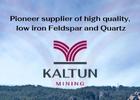Glashütte Freital, which announced in 2018 investments to increase annual production from 80 to 180 million bottles and glasses with "the latest generation of melting furnaces, state-of-the-art technology, and as environmentally friendly as possible in the industry," is now on the brink of closure
After 223 years, a Saxon glass manufacturer may be forced to cease production. Economic turmoil and high energy costs threaten its survival. Glashütte Freital GmbH has filed for insolvency under self-administration. A rescue remains uncertain .
Historic Glass Production in Jeopardy
Founded as the Royal Friedrich-Hütte, the company has withstood numerous challenges. Two world wars and socialist planned economy did not stop glass production. However, current economic and energy policies are now pushing the traditional business to its limits.
Many well-known brands rely on glass from Freital. Wackerbarth sparkling wine, Heide fruit juice, and Nudossi spread are packaged in these containers. However, if no solution is found, this tradition could soon come to an end.
Restructuring Plan and Imminent Job Cuts
The management has informed employees about the insolvency filing. The goal is restructuring under self-administration. Despite the difficult situation, glass production is expected to continue for now. Nevertheless, significant job cuts seem inevitable.
Internal sources report that management is pursuing a strict restructuring plan. Currently, around 130 employees work at the glass factory. However, without drastic measures, operations may not be sustainable for much longer. An official statement from the company is expected soon.
High Energy Costs as a Burden
In a letter to suppliers, the company stated: "Market developments and current conditions have led to a situation where revenues are insufficient to cover all production-related costs, financing expenses, and other liabilities..."
The glass factory is particularly burdened by high energy costs. Glass melting, feeders, and cooling ovens consume vast amounts of energy. The melting furnace alone required a CO₂ levy of around a quarter of a million euros. Additionally, high grid fees in the five-figure range further strained finances.
The main causes of the crisis, aside from energy costs exacerbated by the 2021 energy crisis and increasing competitive pressure, are primarily the burden of CO₂ levies (2024: €250,000, 2025: approx. €305,000, 2026: approx. €333,000, 2027-2029: expected to exceed €500,000).
Beyond the glass industry, Germany needs competitive energy prices, significant reductions in bureaucracy, the development of a long-term strategy to secure energy-intensive industries in Germany, and a review of CO₂ levies for energy-intensive sectors! In 2023, Bavaria and Thuringia established a joint "Round Table" on decarbonizing the glass industry at Rennsteig for this very purpose. Saxony should follow suit.
Uncertain Future
What happens next remains uncertain. Restructuring could save the company, but the necessary cuts will be severe. High energy costs and economic uncertainties weigh heavily on the entire industry. Whether Glashütte Freital can find a solution will be decided in the coming weeks.

























